VACANCIES/ Azure DevOps Engineer
Role:
Azure DevOps Engineer
Job Description:
- Azure DevOps engineers’ daily tasks vary by career and experience. These entry-level engineers learn Azure CI/CD technologies and practices. After reaching mid-level, they start automating and scaling systems. Senior Azure DevOps engineers lead programs, create client-server architecture, and make strategic decisions that support organizational goals. Below, discuss Azure DevOps engineers’ everyday tasks at each career step.
- The DevOps connects product design and development with operations and production to ensure successful product launches.
- They are responsible for designing and developing an organization’s infrastructure, using automation to reduce risk, and maintaining it.
- DevOps engineers must be proficient in technical assessments, deployment, and monitoring to improve system dependability and scalability.
Knowledge: They must stay current with industry trends and best practices, identifying automation, design development, and other solutions to improve operational efficiency.
Versatile Duties: DevOps engineers must be adaptable to handle various task.
Operating System: LinuxWindows OS knowledge and bash/shell scripting, hands-on experience on Ansible or similar tools – Yaml- writing playbook and ad-hoc commands, managing inventory file dynamic and static.
Code Quality Assessment: Utilize code analysis tools to assess the quality of code written by developers. Identify code smells, anti-patterns, and areas for improvement.
Security Scanning: Conduct security scans to identify vulnerabilities (e.g., OWASP Top Ten) in the codebase. Collaborate with development teams to remediate security issues.
Performance Optimization: Analyze code performance using profiling tools. Optimize bottlenecks, memory leaks, and resource-intensive code.
Static Code Analysis: Configure and run static analysis tools. Interpret results and provide actionable recommendations.
Continuous Integration (CI) Integration: Integrate code analysis tools into CI/CD pipelines. Ensure that code quality checks are part of the automated build process.
Technical Debt Management: Identify technical debt (complex code, duplicated logic, etc.). Collaborate with development teams to prioritize refactoring efforts.
Documentation and Reporting: Document findings, recommendations, and improvements. Generate regular reports on code quality metrics.
Must Have knowledge on Application modernization involves updating existing applications to align with a cloud-first model, enhancing performance, security, and scalability.
Refactoring, Microservices, Cloud-First Approach
Minimum Qualifications:
- A minimum of 15 years of relevant experience is required
- A strong background in software development or IT operations and expertise in Azure cloud services are essential. Key qualifications include proficiency in DevOps practices like CI/CD, version control systems like Git, infrastructure as code (IaC) using tools like Terraform or ARM templates, and experience with Azure DevOps pipelines.
- A solid understanding of scripting languages, networking, and containerization (e.g., Docker, Kubernetes) is also crucial. Relevant certifications, such as the Azure DevOps Solutions Expert, can significantly boost your credentials.
Skills Desired:
- Proficiency in Azure cloud services, including virtual machines, containers, networking, and databases.
- Experience in designing, implementing, and managing Continuous Integration/Continuous Deployment (CI/CD) pipelines using Azure DevOps, Jenkins, or similar tools.
- Knowledge of Infrastructure as Code tools like Terraform, ARM templates, or Azure Bicep for automating infrastructure deployment.
- Expertise in version control systems, particularly Git, for managing and tracking code changes.
- Strong YAML, PowerShell, Bash, or Python scripting skills for automating tasks and processes.
- Experience with monitoring and logging tools like Azure Monitor, Log Analytics, and Application Insights for performance and reliability management.
- Understanding security best practices, including role-based access control (RBAC), Azure Policy, and managing secrets with tools like Azure Key Vault.
- Ability to collaborate effectively with development, operations, and security teams, with strong communication skills to drive DevOps culture.
Knowledge of containerization technologies like Docker and orchestration platforms like Kubernetes on Azure Kubernetes Service (AKS). - Strong problem-solving abilities to troubleshoot and resolve complex technical issues related to DevOps processes.
Years of Experience Desired:
Minimum 15 Years


